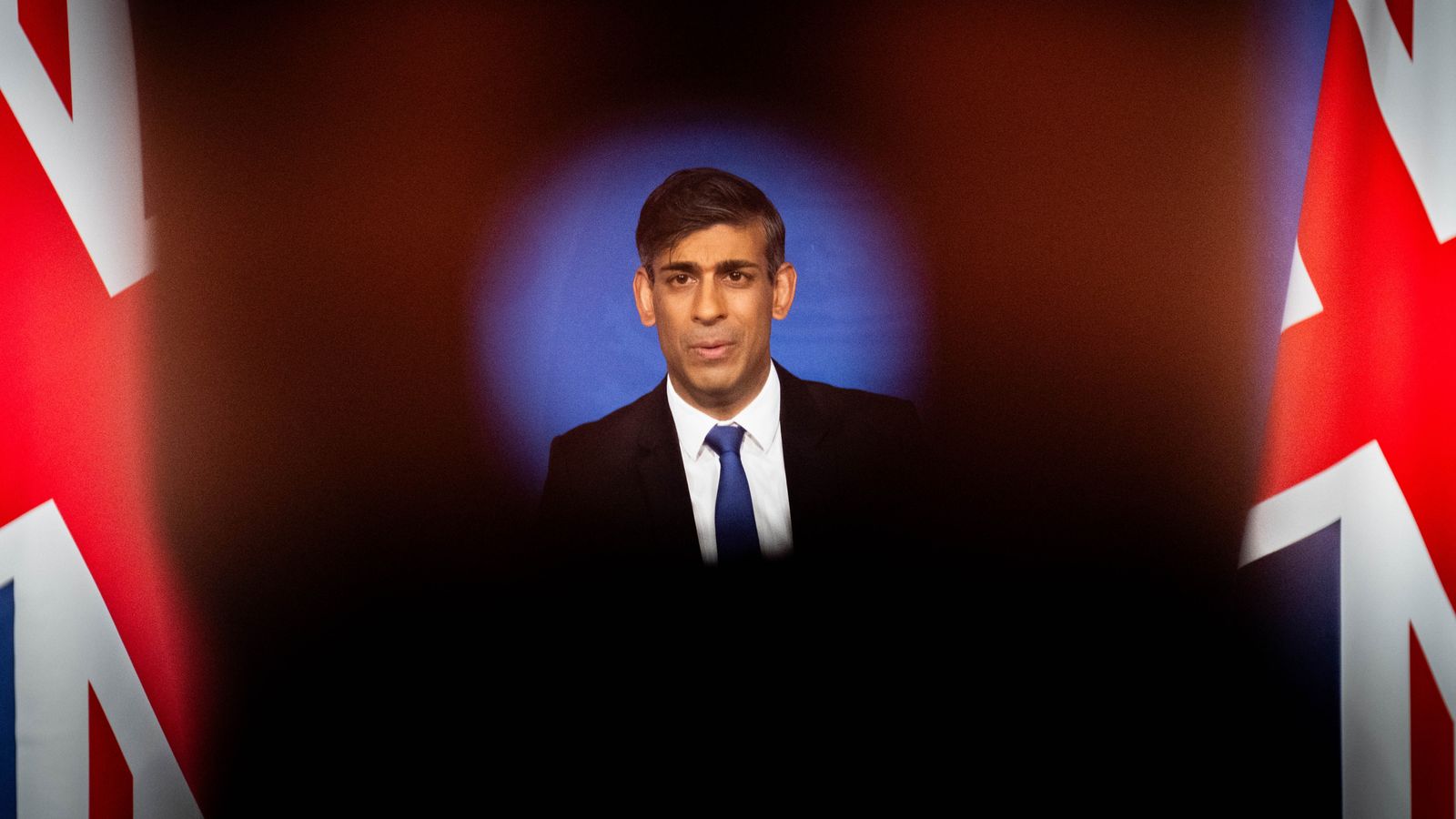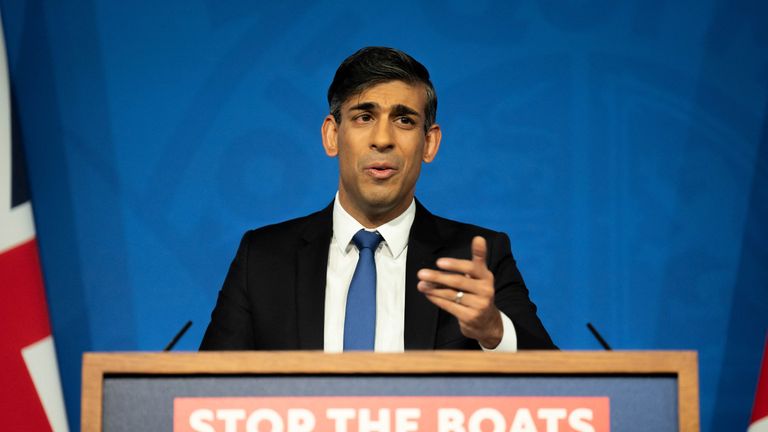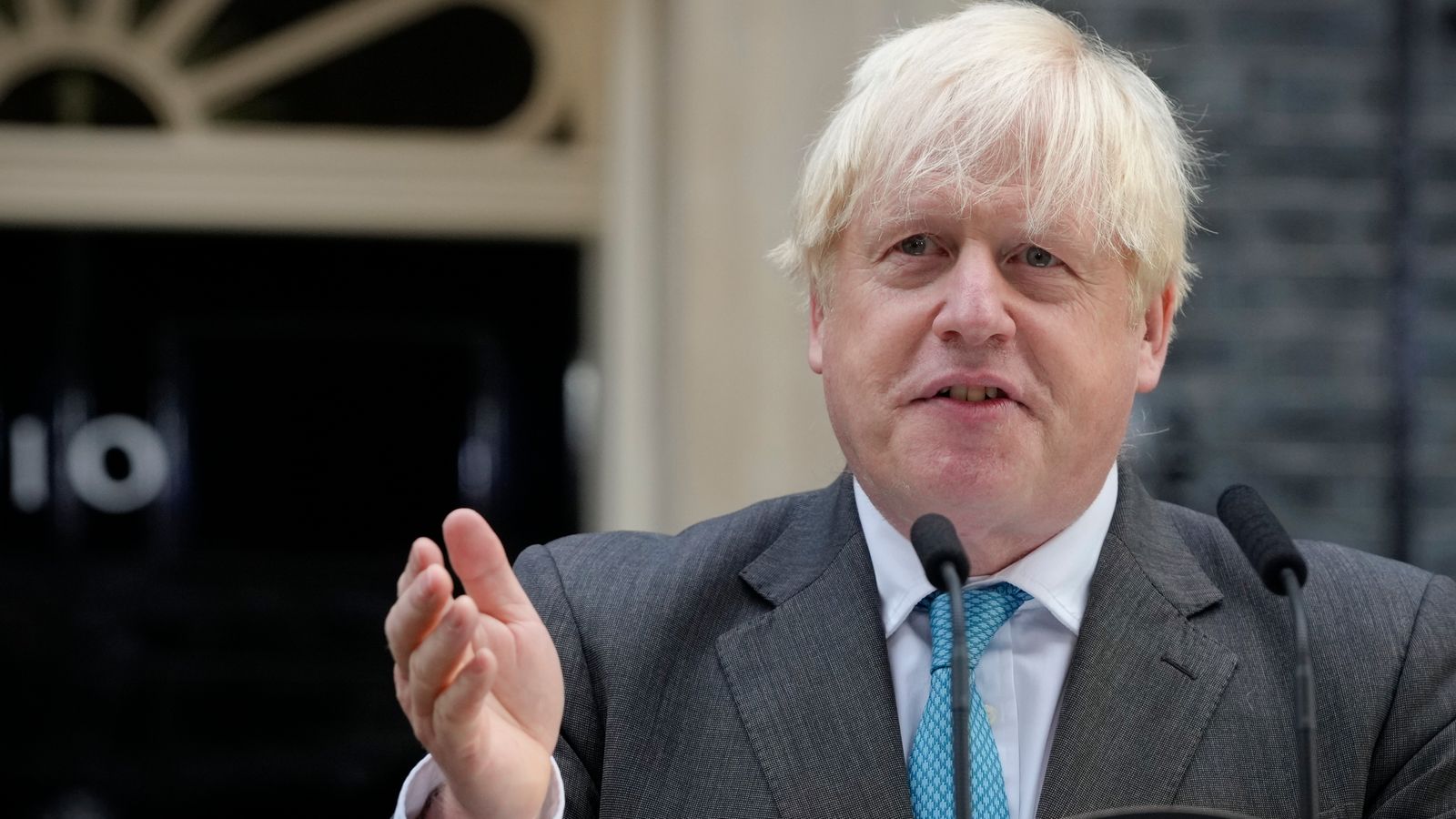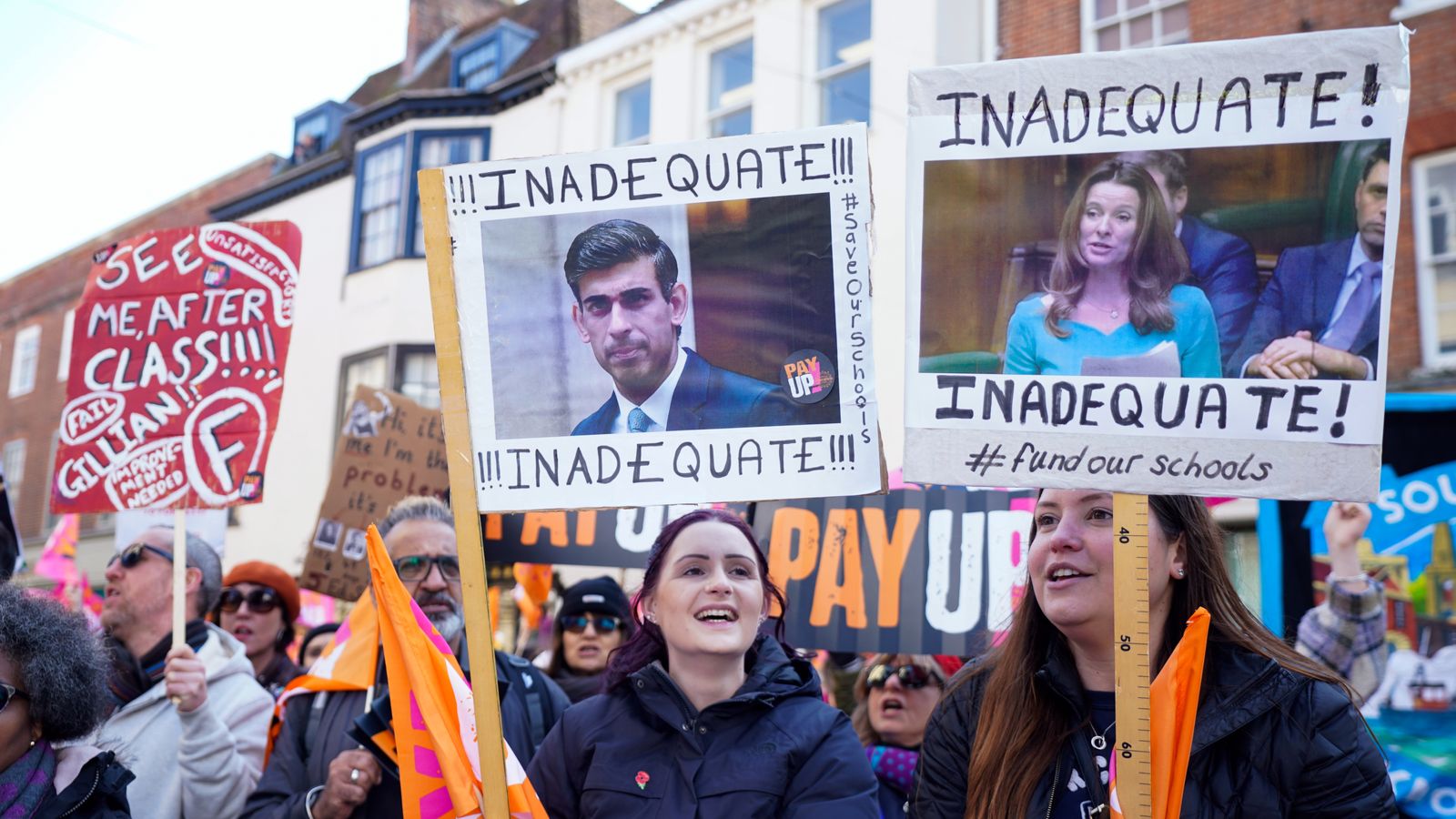What is the revamped Rwanda asylum plan and what hurdles does it face?


Rishi Sunak has introduced emergency legislation in a bid to salvage his embattled Rwanda asylum plan and deliver on his pledge to “stop the boats”.
The goal is to ensure those not entering the UK by legal means face being sent on a one-way trip to the east African country.
But last month, the Supreme Court ruled the policy unlawful and could not go ahead as it was, concluding there was a real risk genuine refugees sent to Rwanda could be returned to their home country, where they would face “ill-treatment”.
In a bid to address the concerns, Home Secretary James Cleverly travelled to the country’s capital Kigali to sign a fresh deportation treaty before setting out the details of a proposed bill, which faces its first parliamentary test on Tuesday.
What is the latest Rwanda plan?
It is made up of two parts, aimed at making the deal legally watertight and so avoiding further setbacks, which have so far blocked all deportation flights amid soaring costs of the stalled policy.
The treaty, which needs to be ratified by the UK and Rwandan parliaments to make it internationally binding, centres on providing assurances to the Supreme Court that asylum seekers sent to Rwanda will not be removed and sent to another country where they face persecution.
As part of this a new appeals process will be established to deal with exceptional cases, such as if someone living in the country under the scheme commits a crime.
Advertisement
British and Commonwealth judges, as well as Rwandan judges, will preside over the appeal hearings and decide whether the individual remains in Rwanda or is sent back to the UK.
Meanwhile, the legislation is designed to enable parliament to confirm Rwanda is a “safe country”.
Please use Chrome browser for a more accessible video player
8:52
Rwanda scheme ‘will do the job’
In a bid to reduce the scope for domestic court hold-ups, the legislation gives ministers the powers to disregard sections of the Human Rights Act, but does not go as far as allowing them to dismiss the European Convention on Human Rights (ECHR).
The UK was among the first to ratify the international treaty which commits its 46 signatories to abide by rules on rights to life, liberty and expression, and protection from torture, degrading treatment and slavery.
It is not linked to the European Union, so Brexit did not affect the UK’s obligations.
Why does this matter?
Because Tory hardliners argue without making the Safety of Rwanda (Asylum and Immigration) Bill more robust and allowing ministers to ignore asylum rulings by both domestic judges and the European Court of Human Rights, which makes binding judgments on the convention, the policy is destined to fail.
It led to the resignation of immigration minister Robert Jenrick, who argued the legislation was “a triumph of hope over experience”.
At the same time, centrist Conservative MPs are insisting the government respects the rule of law and the UK’s international obligations.
The public divisions causes a further headache for Mr Sunak as he seeks to take the legislation through parliament and reassert his authority over fractious backbenchers.
Read more on Sky News:
What is the European Court of Human Rights?
UK government’s veto of Scotland’s gender reform bill ruled lawful by Scottish court
Police close investigation into alleged Tory lockdown party in parliament
Visa changes will harm family relationships, warns Archbishop of Canterbury
As well as differing positions on the ECHR, the Conservatives’ poor showing in the polls has heightened the tensions within the party.
A number of Tory MPs believe reducing immigration, and particularly ending the scenes of asylum seekers arriving on Kent’s beaches, will be key to narrowing Labour’s lead and want to see the government do everything possible to achieve that.
Please use Chrome browser for a more accessible video player

0:36
‘My patience has worn thin, right?’
Although the government argues the proposed bill goes as far as it can as the Rwandan government will pull out of a deal that involves leaving the ECHR altogether, ministers have hinted at compromises with rebels.
Is party infighting the only problem facing the government?
No. As well as having to navigate the bill through the Commons, it also has to clear the House of Lords, where the Tory administration does not have a majority.
Any move to relax human rights safeguards are likely to encounter stiff opposition, not least among the many leading lawyers who sit on the red benches.
Click to subscribe to the Sky News Daily wherever you get your podcasts
The inability of the home secretary to guarantee the proposed law is compatible with the ECHR will only fuel concerns.
As the Rwanda plan was not a manifesto commitment, critics in the unelected chamber will also argue the usual convention of not delaying the delivery of an election pledge does not apply.
With an upcoming election, the timing also means the government cannot use powers under the Parliament Act to force through the legislation.


